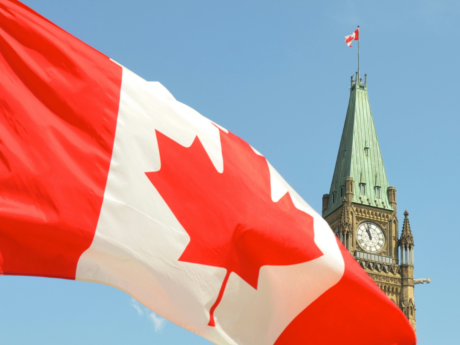What does an interest rate increase mean for Canadians with debt?

Update: On June 2024, the Bank of Canada lowered the interest rate to 4.75%
While the Bank of Canada slightly decreased its interest rate by 0.25% in June 2024, a rate of 4.75% will still have a big impact on the finances of many Canadians, specifically on mortgages and other types of debt.
To help you understand the implications of an interest rate increase, we’re breaking down why the Bank of Canada made the increase and what it might mean for you.
Why did the Bank of Canada raise interest rates?
The Bank of Canada’s role is “to promote the economic and financial welfare of Canada.” One of their primary functions is to control the rate of inflation within the country. Inflation is how we measure increasing prices for goods and services each year. The Bank of Canada works to keep our inflation rate at about 2%. As of January 2022, our inflation rate far exceeded this when it reached 5.1%. Now, we’re experiencing the effects of the jump in inflation every day through the rising costs of groceries, gas, and other necessities. The Bank of Canada's major tool to control or “cool” inflation is to raise the interest rate.
What does a higher interest rate mean for me?
Rising interest rates will have the largest impact on mortgages and other types of debt. The way that they impact debt, however, depends on whether it has a variable or fixed interest rate.
- Variable interest rate: If your debt has a variable interest rate, the amount of interest varies (hence the name) based on the Bank of Canada’s rate. If the Bank of Canada’s rate goes up, your payments go up; if the rate goes down, your payments go down.
- Fixed interest rate: If your debt has a fixed interest rate, the amount of interest does not change based on the Bank of Canada’s rate. Nothing will change in the short term for debt with a fixed rate. If your debt has a term and a renewal (for instance, a fixed-rate mortgage), the payments will stay the same until the term ends. When it comes time to renew your debt, your interest and payments will be determined at the time of renewal. That means that even fixed-rate debt will eventually get more expensive as rates increase.
If you don’t know whether your debt has a fixed or variable rate, you can check your borrowing agreement or ask your lender.
How much are interest rates going up?
The average mortgage balance and home equity line of credit (HELOC) balance in Canada has been increasing. In 2021, the average new mortgage in Canada was $372,000, and the average HELOC balance was approximately $70,000. With loan amounts this big, even small increases in the interest rate will add up. This is especially difficult for Canadian households struggling to make ends meet. Many Canadians live “paycheque to paycheque” and already struggle with the high cost of everyday items; this increase will be a difficult financial burden to navigate. If you're facing an increase in your mortgage come renewal time, we've pulled together some tips to help you navigate the additional costs.
If you are struggling with your finances and would like to discuss your budget or how to manage your debt, reach out to Grant Thornton Limited for a free, no-obligation consultation.
Take the first step to debt freedom
Speak to one of our debt solutions professionals during a free, no-obligation consultation.
Related articles

Caught in the odds: Understanding gambling debt and how to get help

How can a Licensed Insolvency Trustee help with my debt?

Do you owe CERB debt? Here's what Canadians need to know about repayment

How much debt is normal in your province?

Can I file for bankruptcy if I own a house?

What Canada’s 2025 federal budget could mean for your taxes—and your wallet

4 common investment scams and how to avoid them
Looking for assurance, tax, and business advisory services? Visit Doane Grant Thornton LLP.

Loading